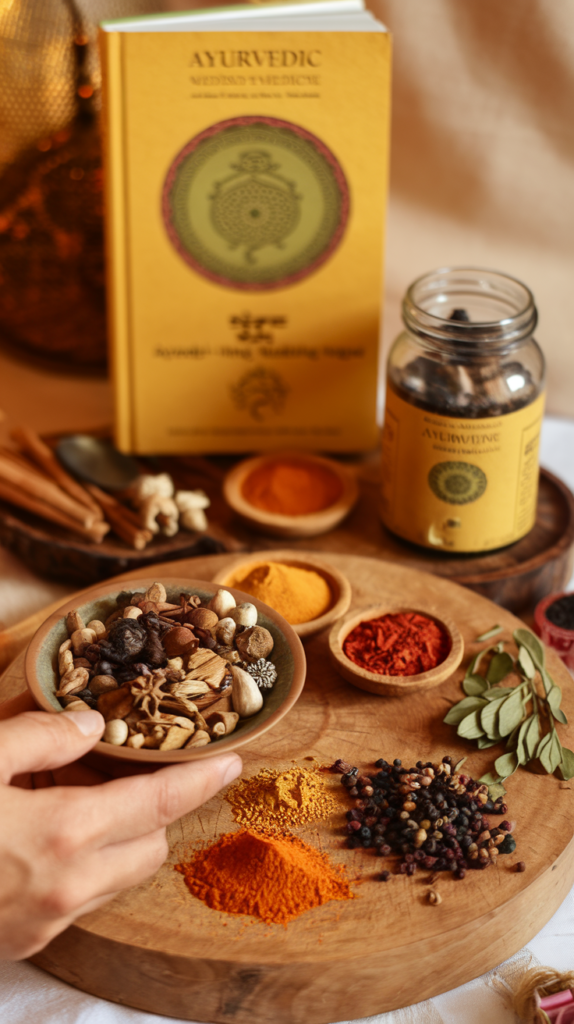Ayurvedic Medicine for Diabetes: Common Questions and Answers
Diabetes is a complex, chronic condition affecting millions worldwide, often requiring a lifetime of management. With a focus on holistic healing and natural remedies, Ayurveda offers potential ways to support diabetes management. In this post, we’ll explore frequently asked questions about Ayurvedic medicine for diabetes, including its effectiveness, safety, compatibility with Western treatments, and lifestyle recommendations.
Can Ayurvedic Medicine Cure Diabetes or Manage Symptoms Only?
One of the first questions that comes up is whether Ayurvedic treatments can cure diabetes. Ayurveda, a holistic approach to health, focuses on balancing the body, mind, and spirit. While it may not provide a cure, Ayurvedic medicine aims to manage symptoms, support healthy blood sugar levels, and reduce complications of diabetes through dietary changes, lifestyle modifications, and herbal remedies.
Ayurveda treats each individual as unique, which means that therapies for diabetes (known as “Madhumeha” in Ayurveda) are personalized. This could involve herbal treatments, lifestyle practices, and a specific diet to address underlying imbalances rather than merely targeting blood sugar levels.
What Ayurvedic Herbs and Treatments Are Recommended for Diabetes?
Ayurvedic medicine includes a range of herbs known to support blood sugar management:
- Bitter Melon (Karela): Known for its blood sugar-lowering properties.
- Fenugreek (Methi): Helps improve glucose tolerance and is high in soluble fiber.
- Gurmar (Gymnema Sylvestre): Known as the “sugar destroyer,” it may reduce sugar cravings and improve insulin function.
- Turmeric (Haldi): Contains curcumin, which has anti-inflammatory and antioxidant effects beneficial for diabetes.
These herbs, when taken in prescribed doses, might help stabilize blood sugar. However, it’s important to consult a qualified Ayurvedic practitioner before starting any herbal regimen, especially if you’re on prescription diabetes medication.
Are Ayurvedic Remedies Safe to Use Alongside Conventional Diabetes Medications?
Safety is a primary concern when combining Ayurvedic treatments with Western medications. Most Ayurvedic herbs are generally safe, but they may interact with certain diabetes medications, potentially leading to lower-than-expected blood sugar levels (hypoglycemia). For instance, combining bitter melon or gurmar with insulin or other blood sugar-lowering drugs should be done carefully under professional guidance.
Ayurveda emphasizes a personalized approach, so an Ayurvedic practitioner can help determine safe combinations based on your specific health profile.
What Diet Does Ayurveda Recommend for Managing Diabetes?
In Ayurveda, diet is a central pillar of health, especially for managing diabetes. Ayurvedic dietary recommendations for diabetes focus on reducing foods that lead to high blood sugar and increasing foods that stabilize it. Key recommendations include:
- Avoid refined sugars and processed foods.
- Favor whole grains, like barley and millets, over refined grains.
- Include bitter and astringent vegetables, such as leafy greens and gourds.
- Incorporate warming spices, like turmeric, cinnamon, and fenugreek, which help with digestion and metabolism.
Ayurveda also advocates mindful eating, emphasizing smaller, regular meals and avoiding overeating. The diet should be rich in fibers, proteins, and natural plant-based fats to help maintain balanced blood sugar.
How Important Are Lifestyle Changes and Stress Management in Ayurveda?
Ayurveda views stress as a major contributor to imbalances that can exacerbate diabetes symptoms. Ayurveda recommends daily practices to reduce stress, improve sleep, and promote physical and mental balance. Practices include:
- Meditation and mindfulness exercises, which can reduce stress and help with glucose control.
- Gentle yoga and pranayama (breathing exercises), which improve circulation and balance energy levels.
- Daily self-care routines (dinacharya), like oil massage and warm baths, which support relaxation.
These practices support overall wellness, which in turn can make blood sugar easier to manage.
How Should Blood Sugar Levels Be Monitored When Using Ayurvedic Treatments?
Monitoring blood sugar levels is crucial for managing diabetes effectively, whether you’re using conventional medicine, Ayurvedic treatments, or both. Regular monitoring can help you track how your body responds to new treatments and make adjustments as needed.
It’s best to follow your doctor’s advice on when and how often to check your blood sugar. If you’re using Ayurvedic remedies, share any changes in your readings with both your Ayurvedic practitioner and your healthcare provider. This collaborative approach ensures that you can safely integrate Ayurveda into your diabetes management plan.
Can Ayurveda Help Prevent Diabetes?
Many people turn to Ayurveda for preventive care, particularly if they’re at risk of developing diabetes. Ayurveda focuses on balancing lifestyle, diet, and mental health to prevent metabolic disorders. If you’re prediabetic, Ayurvedic herbs, lifestyle adjustments, and diet can help stabilize blood sugar and improve insulin sensitivity.
Practices like yoga, a nutrient-dense diet, and stress reduction can collectively support a preventive approach to diabetes. Ayurvedic consultations may also help identify risk factors and provide guidance on specific foods and herbs to incorporate or avoid.
What Does Research Say About the Effectiveness of Ayurvedic Medicine for Diabetes?
Ayurveda has centuries of traditional knowledge, and recent studies are beginning to validate its effectiveness. For instance, herbs like turmeric and fenugreek have been researched for their anti-inflammatory and insulin-sensitizing properties. Gurmar has shown promise in reducing sugar absorption in animal studies, and bitter melon may help reduce blood sugar levels.
While Ayurvedic medicine for diabetes is promising, more high-quality research is needed to fully understand its effects. Always discuss any Ayurvedic treatment with your healthcare provider, especially if you’re managing chronic conditions.
Final Thoughts
Ayurvedic medicine offers a holistic approach to managing diabetes that complements conventional treatments. By addressing the root causes, such as diet, stress, and lifestyle, Ayurveda seeks to bring balance to the body and support healthy blood sugar levels. However, diabetes management is complex, and combining Ayurvedic practices with Western medicine should be done with care and professional guidance.
If you’re considering Ayurvedic treatments for diabetes, consult with both your healthcare provider and a qualified Ayurvedic practitioner. Working together, they can help tailor a safe, effective plan to manage your diabetes holistically.

